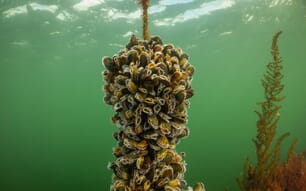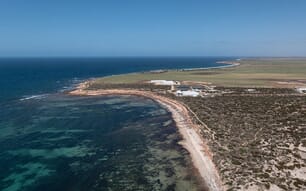They want assurances that a number of crucial issues like overfishing and overcapacity will be addressed in the fishery, which is valued at more than $7 billion per year.
Leading retailers Marks & Spencer, Sainsbury’s and Waitrose, together with the pole-and-line tuna brands Fish4Ever and Fish Tales want governments to support the adoption of new conservation and management measures that will strengthen the framework for sustainable tuna fisheries in the Western and Central Pacific Ocean.
“Through our sustainable seafood sourcing policy, we are engaging with all stages of the supply chain to identify where change is most needed and then helping to ensure that it is duly implemented. Canned tuna is such an important product – not just for our customers, but for consumers throughout the world – and it is imperative these species receive the careful management and protection that they deserve. We therefore want to see the policymakers at the forthcoming WCPFC meeting demonstrate they are fully focused on delivering a sustainable future by making certain the fishery is responsibly managed in line with the best practices,” said Hannah Macintyre, Fisheries and Aquaculture Manger at Marks & Spencer.
“Sustainability in seafood is a complex and multi-topic issue. It goes well beyond ensuring stocks are decently managed and exploited, which of course is important. Pole-and-line fishing helps maintain healthy fish stocks by being very selective, but it also keeps the right sort of jobs in larger numbers at sea. It is more participatory, democratic and could be an excellent tool for protecting and developing coastal communities worldwide. For us, pole-and-line tuna isn’t an option amongst many; it is the only correct choice,”said Charles Redfern, Founder of Fish4Ever.
All of the companies calling for major improvement are members of the International Pole & Line Foundation (IPNLF) – a charity aimed at promoting tuna fisheries with minimal environmental impact and improving livelihoods in the coastal communities dependent upon these fisheries.
“The UK is a world leader when it comes to sourcing sustainable tuna,” says Adam Baske, Policy and Advocacy Advisor at the IPNLF.
“Working with retailers and brands that actively seek out the greenest and cleanest tuna can have real impacts on the water and be of significant benefit to the fishing communities themselves. It is testament to their engagement that they are prepared to call on governments to ensure the overall management of these fisheries is improved.”
He continued: “We are hoping these further calls of support will lead to tangible management improvements at this year’s WCPFC meeting. More sustainable management frameworks will benefit every country involved in this huge fishery, bring long-term returns to fishing communities, and minimise the risk of future fisheries collapse."




